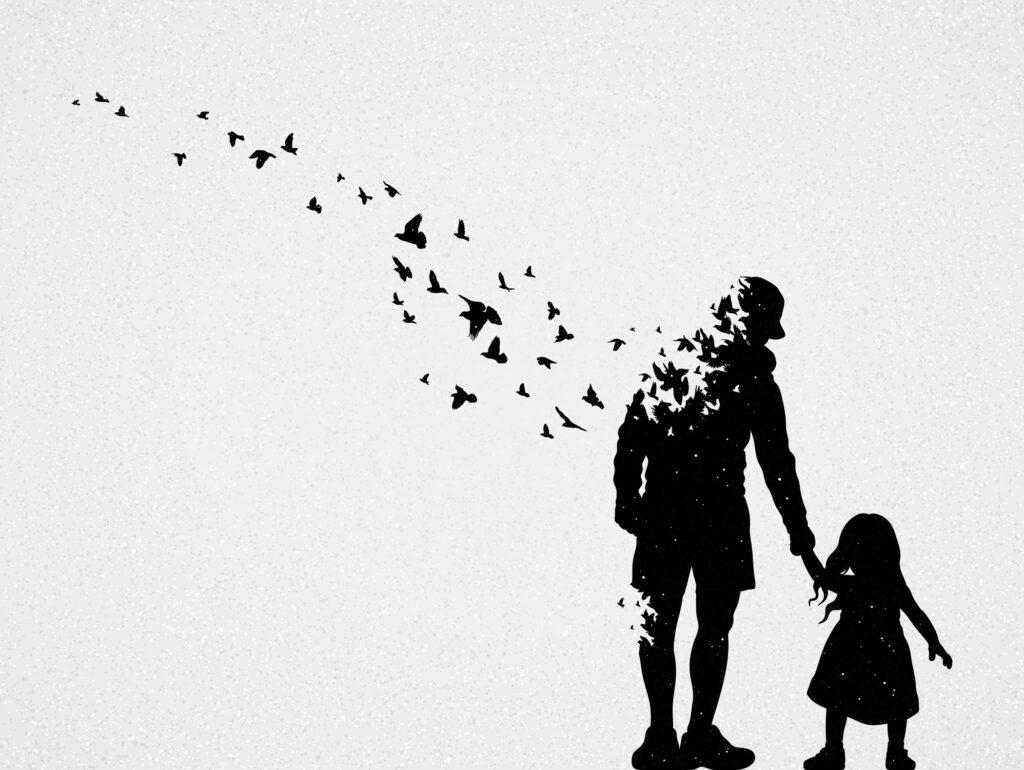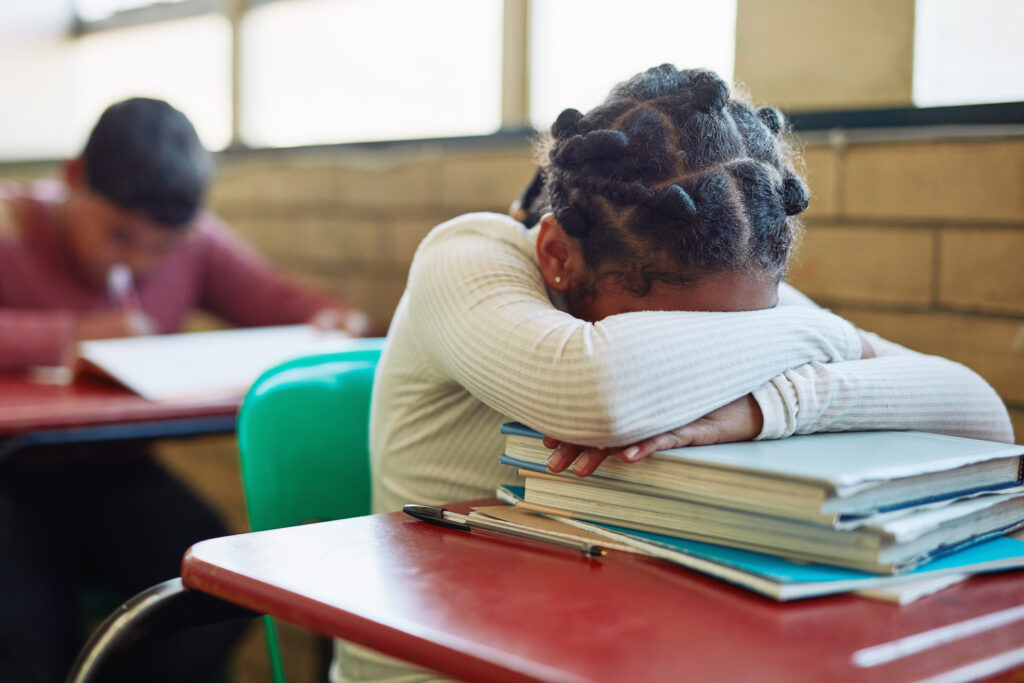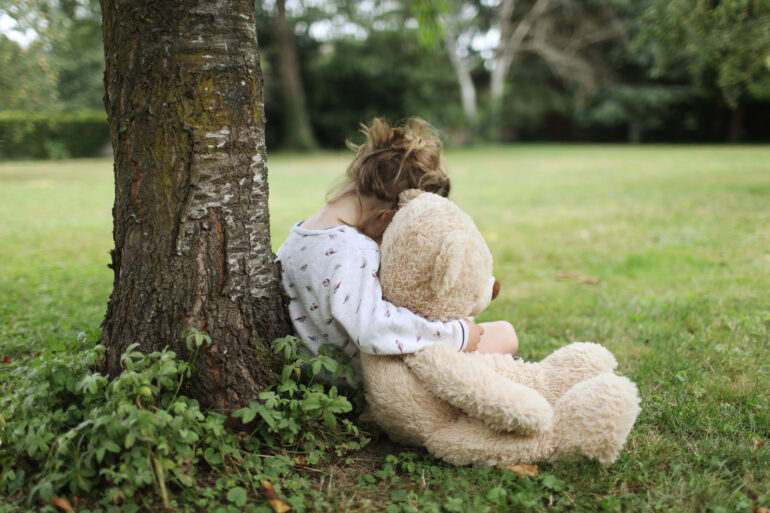One piece of my multifaceted identity is that I’m a grown grieving child. My name is Megan Andriano and I’m a 39-year-old woman who is grateful to wear multiple hats, including that of art therapist and licensed professional grief counselor. When I was 13 years old and my brother was seven, our dad died. While my memory is foggy for those first couple of years after he died, many actions by others made a positive difference in our grief journeys.
Childhood memories can stimulate numerous positive thoughts; they can also be marked by the death of a parent or sibling. One in 12 children in Illinois will experience this loss by the time they are 18 years old. Furthermore, according to a 2024 report by Judi’s House/JAG Institute, “Illinois children under the age of 18 in the lowest income counties are 52% more likely to experience a parent or sibling death compared to peers in the highest income counties.”

November marks National Children’s Grief Awareness Month, and as the program director for Willow House, this is a time when I ask communities to call upon organizations like ours to provide support, resources and hope. When experiencing grief due to the death of an important person in one’s life, daily life can become bombarded with questions about safety and health.
Secondary losses can soon follow the death of a parent or sibling, such as a potential move, financial strains, and questions about or loss in faith and identity, to name a few. Sleep, appetite and other aspects of a person’s physical health are often affected by grief. Difficulty with focus in school is also often present in children experiencing grief. In fact, 97% of teachers believe grief adversely impacts learning.
The death of a parent, sibling or other important person in a child’s life is one of the most frequently reported disruptive childhood experiences. Studies show that youth whose grief goes unattended are: five times more likely to die by suicide; nine times more likely to drop out of high school; 10 times more likely to engage in substance abuse, and; 20 times more likely to have behavioral disorders. Organizations like Willow House help change this narrative.

Willow House, headquartered in Bannockburn, offers free family peer grief support groups for children, teens and young adults who have experienced the death of a parent/caregiver, sibling or child. Our programs equip participants with positive coping skills and help promote resilience, post-traumatic growth, and hope for their futures. For children specifically, grief support helps them maintain appropriate emotional and psychosocial development.
Twenty-six years later, my grief is old enough to rent a car and I still well up as I write this. Grief has no end date or final “stage.” Grief changes us, and it also provides the opportunity for growth and for our friends, family and community to rise to the occasion in support.
How to Support Someone Who’s Grieving
Children are often the forgotten grievers. They need to know that what they’re feeling is normal and that they are not alone. Here’s how you can support Willow House’s mission to help local children and families experiencing grief:
- Share grief resources available at: www.willowhouse.org
- Be a good listener, which includes being present, no interrupting. Ask about their person who died. “What was your mom’s name?”
- Resist giving advice, saying: “They’re in a better place.”
- Let them know you care and want to help — but recognize statements that only foster more distance and loneliness.
- If you can’t find the words, simply express that: “I don’t know what to say, but I’m here for you.”
- Instead of “Let me know however I can help,” give them choices of tangible things you can do instead. A grieving brain is fatigued and foggy. Alleviate that for them by saying, “I can take [little Janey] to school,” or “I’ll come cut your lawn this Saturday,” I’ll drop off a meal” or text them a Door Dash gift card.
If you know someone who needs grief support, contact Willow House at 847-236-9300 to be connected with a clinical professional who can assist in providing an appropriate path to hope and healing.
How to Help
Since 1998, Willow House has guided thousands of children and families through the pain of losing a loved one. The death of a parent or child can bring not only emotional heartbreak but also serious financial strain. To make sure every family can access support, Willow House offers its services completely free of charge — without government funding or insurance reimbursement. The organization relies entirely on the generosity of individual donors to continue this vital work.
Your contribution helps grieving families find comfort, connection, and hope.

This post was submitted as part of our “You Said It” program.” Your voice, ideas, and engagement are important to help us accomplish our mission. We encourage you to share your ideas and efforts to make the world a better place by submitting a “You Said It.”

